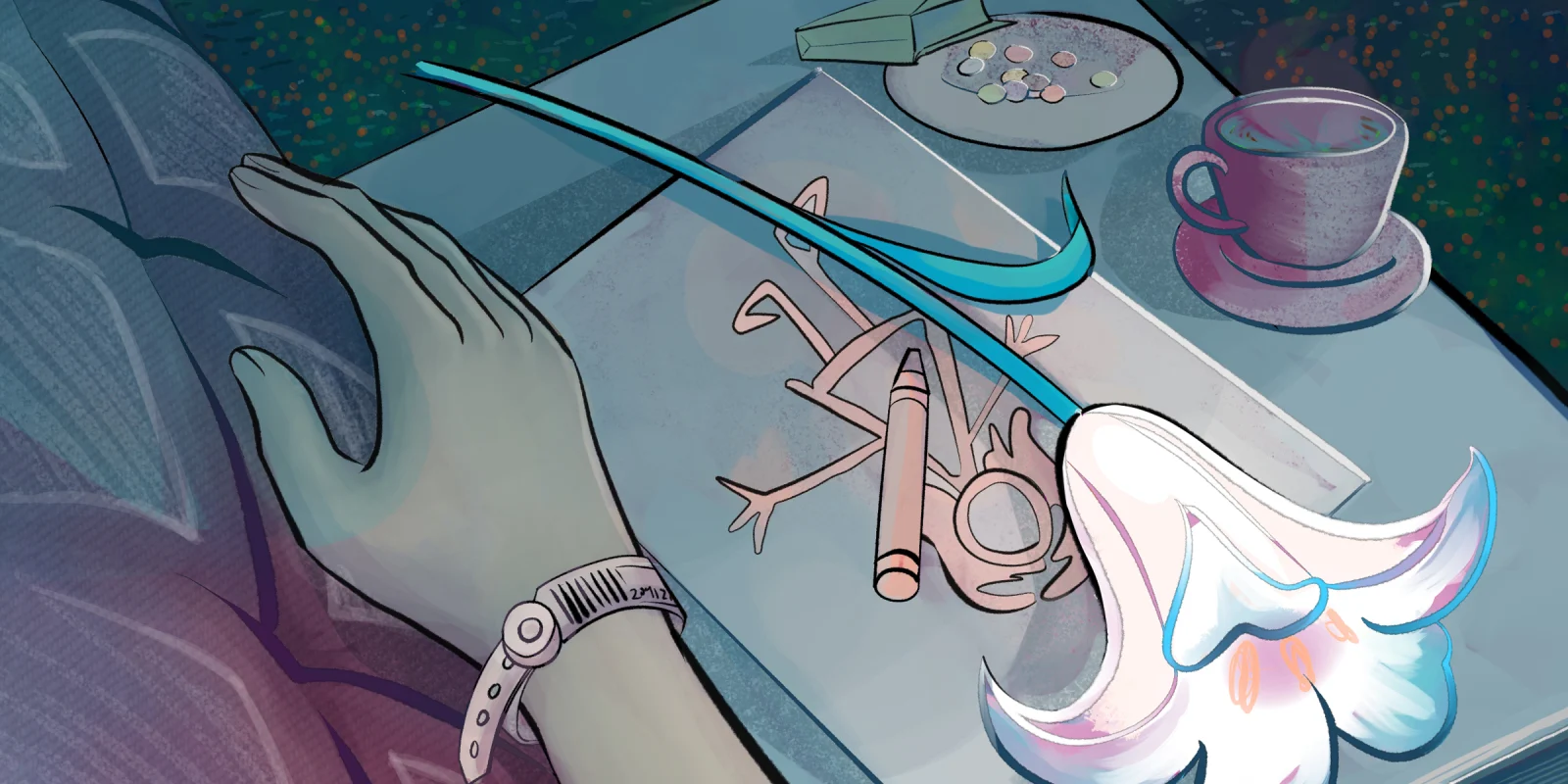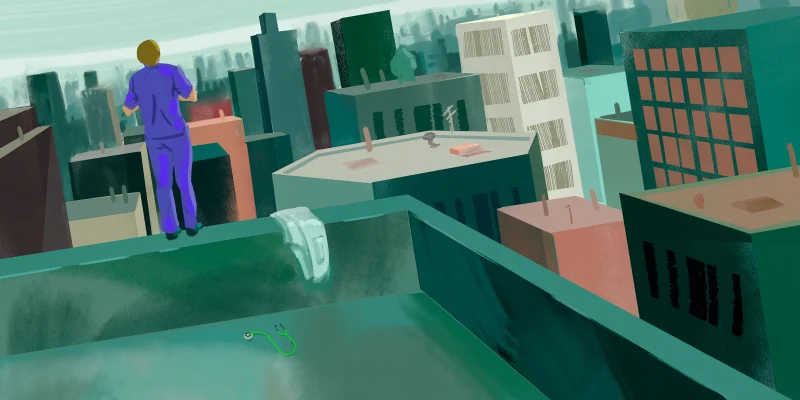Waking up paralyzed in my right leg was never part of my birth plan. Yet after my epidural wore off, I found myself with a numb, limp right appendage that wouldn’t move despite my brain’s best efforts. Nothing is as bizarre as forming a distinct command in your brain to wiggle your toes, seeing your toes which you have wiggled millions of times before, concentrating with all your effort for even just the slightest movement – and have absolutely nothing happen. The previous relief I felt at having just delivered a beautiful baby was overcome with an inescapable dread knowing something was wrong. It was then I heard the nurse say, “Her affect seems off” – one statement to summarize the moment I realized I would go from a fully functional, healthy ophthalmology resident to someone dependent on a 4-wheel-walker for what could be the rest of my life.
When I told my team something was wrong, they said it was probably the effects of the epidural and to wait until the next morning. I slept that night dreaming I was walking again, hugging my husband and carrying our baby, but woke up to the cruel reality that I still couldn’t move my leg. I waited for my obstetrician to explain what might’ve caused this unexpected complication and was told she’d come soon, but she never came. The person I hoped could best explain everything had already gone home. This seemed an ominous sign, so I asked my nurse more firmly to speak with my obstetrician. Only after I spoke up did I hear my room’s phone ring with her on the other line. She told me that my complication could’ve been due to peroneal nerve damage during delivery or poor positioning, but it is extremely rare. The anesthesiologist agreed it could’ve been due to positioning and not likely due to the epidural, but the neurologist said it was probably due to epidural placement and my function should return in two weeks. Writing this months later, it had not.
The contradicting statements from my team were frustrating but I understood that it was a testament to the rarity of this complication. I hoped my team would also understand how confusing it was to hear this as a patient, but when I had questions and concerns about what happened and my prognosis – wondering whether the past 10 years I dedicated to train as an ophthalmologist was a waste – my questions were answered with impatience. My friends in neurology suggested an MRI to see if this was treatable, especially if there was concern that this was due to the epidural, which could indicate a hematoma. However, they refused the MRI and told me they would write “per patient request” to ensure it was self-pay – despite not “requesting” this complication in the first place. One obstetrician made light of my situation and told me to treat it like a vacation. One resident had asked, “Wait, why can’t you just walk?” My immediate postpartum state did not have the energy to explain that if I had the stability to walk, I would. It was like trying to walk on a peg leg for the first time but the peg itself shifted. I was reminded how easily someone in medicine could forget the patient’s concerns due to medical efficiency and time constraints, and learned how I would approach my patients in the future.
After I told my sister, also in medicine, what happened, she was appalled but mentioned the racism associated with obstetrics. An already vulnerable population, pregnant woman who also identify as people of color are almost two times more likely to feel mistreated. She wondered if I was treated this way, as someone who at least had some background to advocate for myself and hospital resources, what would someone who was not familiar with the medical system experience? I wondered and feared this too. I also realized my privilege as I tried to navigate through the health care system, going from never seeing a doctor for years prior to my pregnancy to seeing multiple specialists weekly. It was jarring being on the patient end of trying to get appointments in a timely fashion, and I again appreciated how lucky I was with my resources but worried about my patients trying to navigate such a complex system. Neurologists were booked months out, physical therapy would be thousands of dollars out-of-pocket, and my husband and I were juggling this on top of caring for a newborn. I felt for my husband who was now the unexpected sole caretaker of our baby and me.
I have spent all of my waking moments trying to get better, and I am now able to walk without a brace or walker. I was grateful to be in a residency program that was very understanding of what happened and allowed me the time to recover. Training while pregnant, I was so worried how my pregnancy affected my co-residents and vowed to make it up after delivery, never expecting a birth complication like this. Despite its difficulty, I gained many positives from this experience. It taught me how important it is to be more empathetic toward my patients – no matter how bad my day might feel, the patient’s day is guaranteed to be worse. I am grateful I had a strong support system, and my residency was able to extend my medical leave. Juggling this along with other complications (my parents visiting and getting into a car accident, our ceiling leaking, postpartum pre-eclampsia and UTI concerns, postpartum urticaria) showed our resiliency, and I’ve learned to be more patient and have faith. I also learned to be appreciative of the small victories; each day was an exciting opportunity to see what function I would regain and am still trying to regain. Relearning to walk is also a way to really connect with my baby, who is also learning baby steps alongside me.
Gina Yu, MD, is currently in her final year of ophthalmology residency at Stanford University. She has previously worked at CNN with Dr. Sanjay Gupta to cover the COVID-19 pandemic, and she believes the foundation for practicing good medicine derives from properly capturing the patient’s perspective, emphasizing the power of narrative and storytelling within medicine.
Illustration by April Brust







